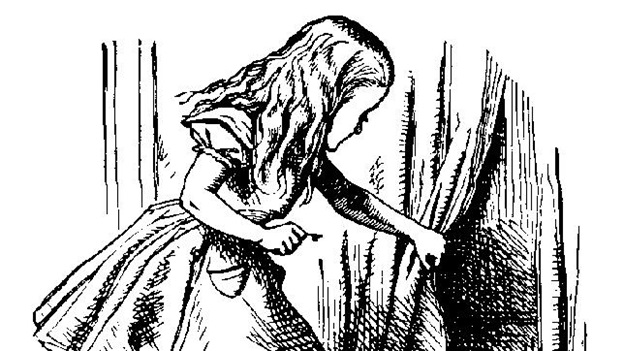Year of the Ingénue by Michael Naghten Shanks
– Reviewed by Jenna Clake –
Michael Naghten Shanks’ Year of the Ingénue is fascinated with cinema, and is divided into seasons, a structure employed frequently in films and television. It follows an ingénue, Imogen White, alongside a figure called ‘S’, and includes surreal, Lynchian interludes.
The opening poem, ‘Seeing’, introduces the pamphlet’s cinematic approach:
On the last night
bus coming out from the city
I smell Turkish
delight & look around
to see a young Korean girl
eyes closed
chewing slowly
These are vivid, concrete images, as the title ‘Seeing’ indicates. Naghten Shanks creates a sense of anxiety around his status as a writer: ‘& who am I to try / to capture this moment’. His use of ‘try’ suggests that nothing he writes will communicate how the moment feels; he also creates anxiety in the voyeuristic act of watching the Korean girl (should he, or we, intrude on this moment of pleasure?).
Voyeurism, or the watching eye, remains a central theme. We meet the titular ingénue, Imogen White, in ‘Ingenue (pt.1 Hollywood’s Newest)’:
Those laying eyes –––– on Imogen White
for the very first time –––– are advised
to savour the moment
The spaces and breaks in each line mimic the eye movements of those watching Imogen White: they look, pause, and move downwards, as we are advised to ‘savour the moment’. The fact that Imogen’s last name is White is unsurprising: the ingénue, with her ‘newly blond hair’ and ‘thin frame’ should be innocent, and ‘very first time’ further suggests her virginal qualities.
The epigraph of the pamphlet’s third poem, ‘Celebration (or, The Performance of Happiness)’, reminds me further of my role as viewer: ‘And all of this plays out before the eyes of the assembled spectators’. This can also be read as a directorial instruction. The poem is an uncanny scene:
Two young women, possibly sisters
stand by side by side, poised to dance
the final routine in the centre of the room
decorated with vibrantly coloured balloons,
fairy lights and floral banners. To their right –
our left – a young man, possibly their brother,
sits ready to play guitar.
This suggests a Lynchian dream sequence, and also bears similarity to a disturbing scene in Yorgos Lanthimos’ Dogtooth: there is something unsettling about the childlike setting and the ‘severe expressions’ of the adult siblings. We are subtly reminded that we are spectating: it is possible to almost miss the reminder that the dancers’ right is our left. The final lines state:
There are no photographs of the young women
or man or whoever else is present in the room
There is perhaps an unwelcome, lurking presence watching the siblings. It is only on reflection that we realise that we are that presence.
In ‘SJA’, the speaker watches S online, ‘scroll[s] through her tumblr’ and sees ‘the picture of her reflected / in the glass of her apartment’s window’. Despite this being a post on a blog, there is a sense of intimacy: he notes how the ‘fun-sized chocolate bars / […] piled on top of her bed’ might have been blown in through the window, and the ‘tattoos on her thighs are blurred’, suggesting attention to detail, closeness. This is emphasised by the woman’s reflection in the window, almost as though the speaker is watching her through glass.
We are allowed into more private moments between the speaker and S in ‘I Am Your Refrigerator At 3 A.M. When You Are Hungry’:
You sprinkle sugar over everything; the clumps of sugar on my sheets
Remind me of the stars above the beach.[…]
In a month, you’ll confess
your sins over Sunday lunch, across the table in a café,
croissant crumbs will stick to your forearms. Tonight, you stroke
the scar on my thigh inscribed by a firework. […]
When we wake, you say: I spilled the sugar.
I say: I know, I could taste it on your elbows.
We are intruding on intimate interactions, small ways in which the speaker loves S’s habits. However, this could still be a scene in a film: I imagine close-up shots of S’s crumb-covered arms and the couple lying in bed. In ‘Pouring Salt Is Her Default’, S admires:
the owl she’s made –––– & offers me the remnants
that will stick to her fingers
I lick expecting sugar –––– (grimace)
this is salt I say ––– it always is S says
In the film 500 Days of Summer, Rachel tells Tom: ‘I think you’re just remembering the good stuff. Next time you look back, I, uh, I really think you should look again’. The speaker of these poems might have been looking at S in the wrong way. What he once thought was sweet is salty; he perhaps does not know S as well as he believes he does.
In the penultimate poem – ‘Ingénue (pt. 3 Parisian Hotel Interview)’ – we watch Imogen White, eight years older, trying to move away from her most famous role of ‘Tom Cruise’s girlfriend’ to redefine her career. She looks
at roles that move away from the mould and are more based
on women that are experienced and have had a life
before the stage you find them in
Imogen White is going through a struggle that most female actors experience, ‘a character actress trapped / in an ingénue’s body’. However, at the moment that Imogen attempts to assert authority, the watcher returns:
Giving up the cutesy,
doe-eyed ingénue show was a smart move; its appeal
was wearing thin for those keen observers who were well aware
that she was in on the industry’s secret handshake.
The extraordinary thing about her is that whatever she’s wearing –
today, it’s an ivory and liquorice jumpsuit that accentuates her tiny frame –
you can’t help but focus on her eyes
The watcher-speaker undermines Imogen’s attempt to redefine herself by referring her choice back to public approval: the watcher-speaker thinks this is a good idea, and therefore it is. They also undermine Imogen’s work, suggesting that her success is based on her knowing the industry’s ‘secret handshake’, rather than her talent. The voice is fit for the Daily Mail: rather than focusing on Imogen’s career, they discuss her outfit, her ‘tiny frame’ and her ‘eyes’. The watching is most aggressive here: not just watching, but passing judgement. Michael Naghten Shanks deftly shows how at times, looking seems innocent, like the Imogen we are first introduced to; at others, it is an unwelcome and sinister act.



